#DontBeFooled
#ItsYourMoneyNotTheirs
#VoteOnTaxesAndFees
#FeesAreTaxes
#TABOR
#ThankGodForTABOR
#FollowTheMoney
#FollowTheLaw
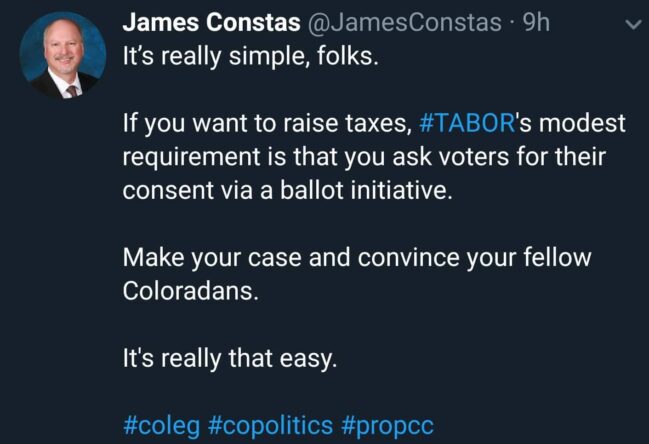
#DontBeFooled
#ItsYourMoneyNotTheirs
#VoteOnTaxesAndFees
#FeesAreTaxes
#TABOR
#ThankGodForTABOR
#FollowTheMoney
#FollowTheLaw

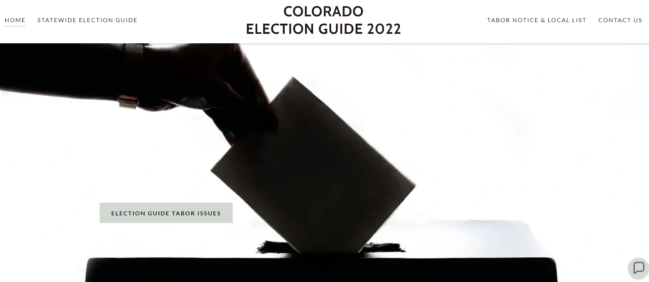
The column above provides how-to and then links to this website which has the local TABOR ballot issue list:
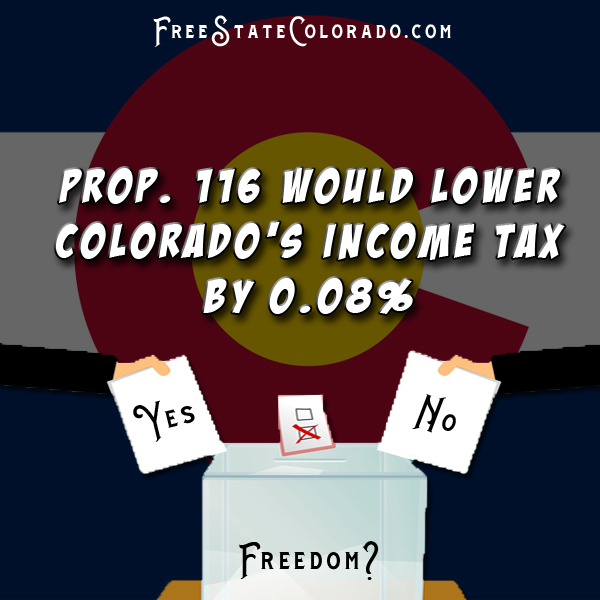
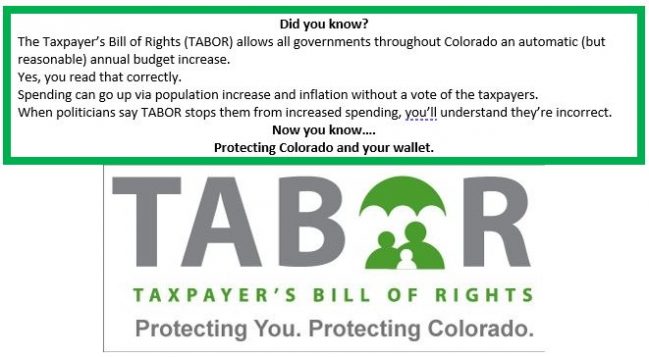
On May 24, 2021, the Colorado Supreme Court continued its crusade against the Taxpayer’s Bill of Rights. It allowed the General Assembly, yet again, to maneuver around TABOR’s constitutional restrictions and effectively raise taxes without getting the required voter approval. The procedure used by the General Assembly was the unusual one of submitting Interrogatories to the Supreme Court, which ask whether their proposed scheme is allowed, prior to passing the law.
At issue were the mill levy rates in 174 separate school districts. The voters in all of these districts had, with varying language and circumstances, voted to exempt their districts from the necessity of returning excess revenues to their taxpayers. The districts were then impacted by the Colorado Department of Education’s determination that, in order to prevent revenues from increasing, they had to lower their mill levies as property values increased, and therefore, property tax revenues increased.
The legislature proposed, and now has passed, a complex plan to eliminate tax credits, which it created just last year, gradually over the course of the next 19 years. Of course, the State imposition of higher mill levies and its elimination of tax credits will raise taxes. Given the increase in Colorado property values, the increases will be significant.
The TABOR Foundation, filed a friend of the court (“amicus”) brief, written by attorney Rebecca Sopkin. The TABOR Foundation’s participation gave you a voice in this matter. The filing protested this clear evasion of the requirement that voters approve any increases in their taxes.
Justice Brian Boatwright, in a well written dissent, pointed out that taxpayers “will see an increase in their mill levy rates as a result of” the proposed legislation, HB1164. He then noted that “[t]he voters today did not approve of this, and neither did the voters in the late 1990s.” The court majority, however, disregarded the obvious impact of this legislation and gave its tax increases the green light.
Colorad Supreme Cout Opinion by The Forum on Scribd
The 1992 Taxpayer’s Bill of Rights requires that tax increases be approved by voters

The Denver-based 10th U.S. Circuit Court of Appeals will consider whether a long-running lawsuit challenging Colorado’s strict tax and spending limits as unconstitutional can proceed.
Colorado Politics reports that a nine-judge panel will consider on Monday a review of the lawsuit, which was filed in 2011 by group of elected officials.
The 1992 Taxpayer’s Bill of Rights requires that tax increases be approved by voters. It also requires the state to refund tax revenue that exceeds a figure determined by a formula based on inflation and population growth.
To continue reading this story, please click (HERE):

North Carolina legislators recently filed a bill that would enable voters to decide if a Taxpayer Bill of Rights should be added to the state constitution.
The main feature of a Taxpayer Bill of Rights is that it would limit the annual growth rate of the state budget to a rate tied to inflation plus population growth. Other provisions would require voter approval of tax increases and mandate that excess revenue collections be used to bolster the state’s Rainy Day fund and refunded back to taxpayers.
The benefits of a Taxpayer Bill of Rights are many, most notable in that it would make permanent the fiscal restraint that conservative lawmakers have exercised over the last decade. Common-sense restraints on spending can smooth out spending cycles, better prepare the state for economic downturns, and enable tax cuts to make North Carolina more competitive for investment and job growth.
To continue reading this story, please click (HERE):
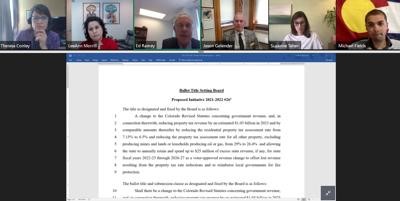
The Title Board reconsidered its ballot titles for three property tax reduction proposals at its April 30, 2021 meeting.
Opponents were unsuccessful at derailing three ballot initiatives that would cost local governments more than $1 billion in property tax revenue as the Title Board on Friday stuck by its original decision to award a ballot title to the measures.
On April 21, the three-member board concluded Initiatives #26-28 contained a single subject, as the state constitution requires, and consequently set a title that would appear before voters. But objectors Carol Hedges and Scott Wasserman challenged the board’s finding, trigging a rehearing at the Title Board’s final meeting to screen proposals for the 2021 statewide ballot.
As introduced, the initiatives would all reduce the residential property tax assessment rate from 7.15% to 6.5% and cut the assessment rate for all other property from 29% to 26.4%. Nonpartisan fiscal analysts estimated the tax cut would constitute a $1.03 billion hit to local governments, affecting services such as K-12 education and police. Because Colorado’s school financing scheme requires the state to backfill funding for local districts, there would be an extra $258 million in additional state spending each year.
Partially offsetting the sizeable loss in local government revenue would be $25 million that the state could temporarily direct toward localities — if excess income exists that normally would be refunded under the Taxpayer Bill of Rights. The three proposed initiatives would funnel the money toward fire protection, toward reimbursements for the senior homestead tax exemption, toward general relief.
To continue reading the rest of this story, please click (HERE):